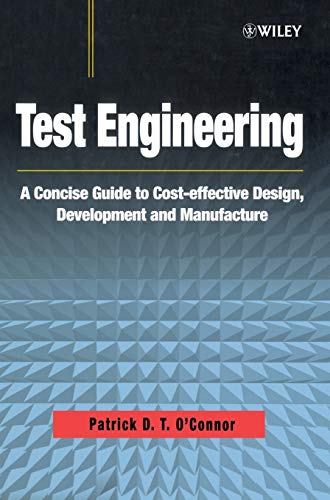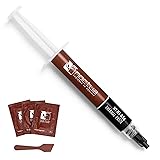All Categories


Test Engineering: A Concise Guide to Cost-effective Design, Development and Manufacture
Share Tweet
Get it between 2025-10-27 to 2025-11-03. Additional 3 business days for provincial shipping.
*Price and Stocks may change without prior notice
*Packaging of actual item may differ from photo shown
- Electrical items MAY be 110 volts.
- 7 Day Return Policy
- All products are genuine and original
- Cash On Delivery/Cash Upon Pickup Available








About Test Engineering: A Concise Guide To Cost-effective
Testing is usually the most expensive, time-consuming and difficult activity during the development of engineering products and systems. Development testing must be performed to ensure that designs meet requirements for performance, safety, durability, reliability, statutory aspects, etc. Most manufactured items must be tested to ensure that they are correctly made. However, much of the testing that is performed in industry is based upon traditions, standards and procedures that do not provide the optimum balance of assurance versus cost and time. There is often pressure to reduce testing because of the high costs involved, without appreciation of the effects on performance, reliability. etc. Misperceptions are commonplace, particularly the idea that tests should not stress products in excess of their operating levels. The main reason for this situation seems to be that engineers have not developed a consistent philosophy and methodology for testing. Testing is seldom taught as part of engineering curricula, and there are no books on the subject. Specialist areas are taught, for example fatigue testing to mechanical engineers and digital device testing to electronics engineers. However, a wide range is untaught, particularly multidisciplinary and systems aspects. Testing is not just an engineering issue. Because of the importance and magnitude of the economic and business aspects testing is an issue for management. Testing is perceived as a high cost activity, when it should be considered as a value-adding process. The objective of this book is, therefore, to propose a philosophy of engineering test and to describe the necessary technologies and methods that will provide a foundation for all plans, methods and decisions related to testing of engineered products and systems. The book will help those who must manage and conduct this most difficult and uncertain task. It will also provide a text which can be used as the basis for teaching the principles of testing to all engineering students.




 (4)
(4)






















